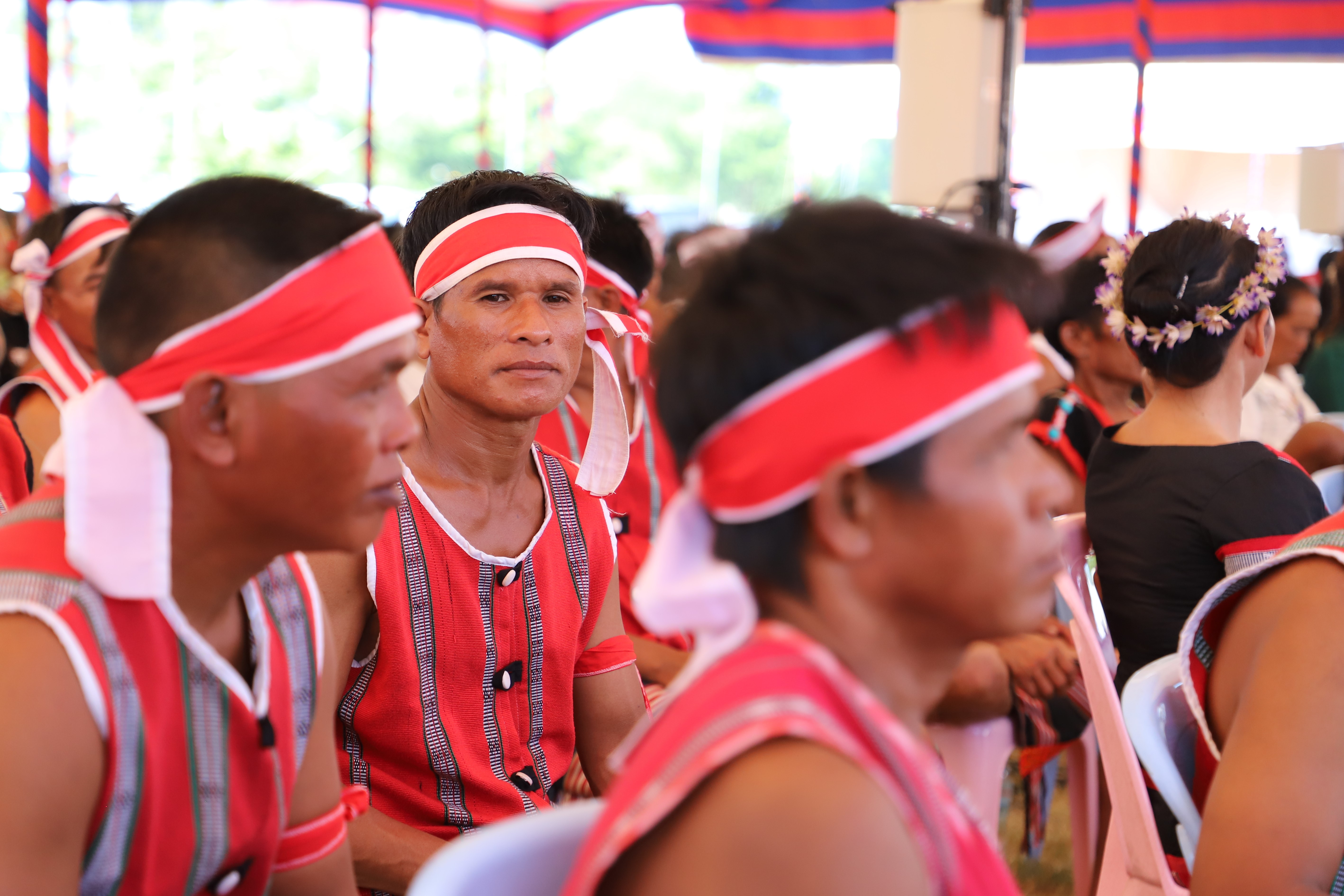
KAMPONG SPEU PROVINCE, Cambodia — Cambodia, in collaboration with the Ministry of Rural Development, the Cambodia Indigenous Peoples Organization (CIPO), and WCS Cambodia, commemorated the 29th International Day of the World's Indigenous Peoples at Kampong Speu Stadium today. Attracting over 2,000 attendees, the event celebrated traditional performances and insights from prominent conservation and Indigenous rights leaders, spotlighting Indigenous youth's role in their community's transformation through education.
This year's focus on Indigenous Youth as Agents of Change for Self-determination draws attention to the scholarships announced in May by the Keo Seima REDD+ project, a collaboration between WCS Cambodia and the Ministry of Environment. These scholarships offer financial support for academic studies, allowing Indigenous Bunong students like Pyinh Derk to study Land Management in Phnom Penh. Derk states, " I chose this major because I want to solve land conflicts in my community and use my knowledge to build community capacity on land legal issues."
Vibol Neth, WCS Cambodia's Deputy Country Director, notes, "These scholarships expand the horizons for these young leaders. They're not just financial assistance but an investment in the youth, empowering them to drive change and be agents for community-wide sustainable development and natural resource conservation."
Home to twenty-four distinct ethnic groups, Cambodia understands the value of intertwining traditional wisdom with modern education. This pairing allows Indigenous youth to craft culturally-rooted solutions to confront climate change and champion the protection of their ancestral lands.
This pursuit of education is intertwined with the broader fight for stronger Indigenous land rights. Cambodia's robust legal framework for Indigenous Peoples' protection, one of the most comprehensive in the Mekong region, is actively at work in places like the Keo Seima Wildlife Sanctuary (KSWS). Here, seven Indigenous Bunong communities have seen their land rights and cultural heritage formally recognized and protected, with several more Indigenous Communal Land Titles (ICTs) underway.
Pheany Sruot, a community leader in Sre Lvi Village and attendee at today's event, underscores the vital role of the youth: "The more our community, especially our young people, understands land rights, the stronger we stand in protecting our land." She adds, "Our lands are our past and our future. Our young people get forest protection and REDD+—they're leading the way to keep our forests and traditions alive."
Many of Cambodia's 450 Indigenous communities remain without formal collective land rights. The milestones reached in KSWS, where Cambodia's first ICTs were granted, underscore the pressing need to extend these rights further. When we respect and uphold these rights, we support Indigenous communities and create spaces where nature and people grow together.
###
About WCS Cambodia
Wildlife Conservation Society Cambodia is dedicated to saving wildlife and wild places in Cambodia through science, conservation action, and inspiring people to value nature. Working in tandem with the government, and Indigenous Peoples and Local Communities, WCS has been active in Cambodia since 1999, focusing on conserving key wildlife species and their habitats while upholding the rights of local communities. For more information, please visit https://cambodia.wcs.org/.
For high-resolution press photos from today's celebration, please click here.
Media Contact
Ms. Phalkun Chan
Communications Manager
Wildlife Conservation Society Cambodia
pchan@wcs.org